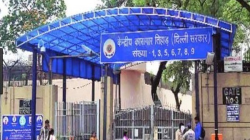Unraveling a Complex Immigration Fraud Scheme
Judicial investigations in Agadir have revealed a sophisticated immigration scam involving fake job contracts for Portugal. The case has led to the involvement of two civil servants from a notary department, who fell victim to an elaborate scheme orchestrated by a student mediation center director.
According to sources, the victims initially filed complaints but later withdrew them due to fears of legal consequences. The woman at the center acted as a key intermediary between a Moroccan migrant, a Brazilian-Portuguese lawyer, and local agents. She was accused of facilitating fraudulent arrangements that left the victims financially and legally vulnerable.
The victims had notarized numerous debt acknowledgments, which were disguised as “agreements” that obligated the intermediary to refund payments if the promised work contracts did not materialize. These agreements were designed to give the illusion of legitimacy to the fraudulent process.
The scam came to light when multiple complaints were submitted to the public prosecutor in Agadir. It was discovered that the intermediary had issued bounced checks to the victims as guarantees, further complicating the situation. Portuguese consular authorities later confirmed that the job offers were linked to fictitious companies with no real activity, adding another layer of deception to the scheme.
As the investigation expanded, police questioned both the victims and the intermediary. They also examined the role of a Portuguese lawyer who traveled to Morocco multiple times to coordinate fake employment arrangements with local brokers. This individual’s involvement suggests a well-organized network that extended beyond a single person.
Investigators uncovered that the victims were encouraged to recruit new candidates in exchange for discounted fees. In some cases, they even issued checks on behalf of family or friends as collateral, demonstrating how deeply the fraud had infiltrated their lives.
The victims, who included engineers, nurses, traders, and banking professionals, were lured by promises of high salaries, housing, transportation, and comprehensive social and health insurance coverage for themselves and their families. Many paid in cash directly to the intermediary’s relatives rather than through formal banking channels, making it difficult to trace the flow of money.
Authorities also found fraudulent documents submitted in visa applications, including fake training certificates issued by a private vocational institute. Victims who paid over 10,000 MAD per certificate were later informed that their diplomas were invalid. Some were offered partial refunds in exchange for withdrawing their complaints, highlighting the manipulative tactics used by the scammers.
This scandal has raised significant concerns about the integrity of job placement services and visa processing in Morocco. It also underscores the vulnerability of professionals and skilled workers to increasingly sophisticated immigration fraud schemes that exploit the desire for better opportunities abroad.
Investigations are ongoing, with authorities working to track down accomplices and examine the full scope of the network. Further legal action is expected as the case continues to unfold. The complexity of the fraud scheme highlights the need for increased vigilance and stronger safeguards to protect individuals seeking to improve their lives through international opportunities.







